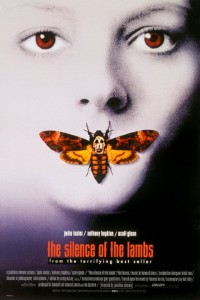 Top 10 Horror Films
Top 10 Horror Films
by Eric Forthun of Cinematic Shadows
Horror films have existed since the dawn of cinema: The Cabinet of Dr. Caligari, Nosferatu, and The Phantom of the Opera are all highly influential films made when celluloid was just starting to develop into an art form. The genre has always had a big place in my heart, with so many films affecting me as a child (both as fun scares and nightmares) that I sought out others I generally wouldn't explore.
So when tasked with making a list of ten horror films that I deem the best (or my favorite, depending on how subjective I must make myself as a critic), I decided to make a chronological journey through ten great choices that build upon one another in some fashion. It's a different exploration, but it'll yield equally exciting results.
For being a horror film from 1931, one thing is definitive about Dracula: Bela Lugosi makes for a killer vampire. Shockingly, his performance still holds up today and stands as one of the most campy, fully crafted presentations of the titular night walker. Any black-and-white films that can use the haunting cinematography allowed by such a drained color palate, particularly in horror, deserve credit. While Dracula doesn't hold up as particularly terrifying, it earns a spot because of its undeniable influence and the impressionable, unforgettable lead performance. 1935's The Bride of Frankenstein deserves mention, too, because it provides us with one of the greatest scenes in the history of film: Frankenstein's monster's encounter with the blind hermit. It's a brilliant, thought-provoking, and everlasting scene. Humanity has never seemed so accepting and fragile.
Alfred Hitchcock's Psycho, circa 1960, reinvents the wheel, killing its lead female in the first half hour and telling the story of Norman Bates in slow burning, methodical fashion. Hitchcock's film has some of the greatest cinematography of any horror film, and its fateful twist still packs a punch on every viewing. It's a stark piece of psychological horror, one of the first of its kind. Ridley Scott's Alien is a reminder of how gore and darkness can be dichotomized into brilliant scares, messing with its astronauts psychologically and scaring them to death. There are plenty of scenes that torture the viewer with their anticipation of a scare, and the film doesn't let up. It's terrifying and produced one of the greatest sequels ever made.
Wes Craven has made two wildly inventive horror films, each with their own unique merit. His first, A Nightmare on Elm Street, has one of those premises that is just too good: what if a psychopath could kill you in your dreams? You're at your most vulnerable when you're sleeping, so why not threaten that last shred of safety? Freddy Krueger is played thrillingly by Robert Englund, and the scares are bloody and satisfying. It's even more remarkable that Craven made Scream later in his career, a film that tears apart horror tropes and examines the self-aware nature of the modern generation. Nothing seems to surprise us anymore, but Scream kills off its advertised protagonist in the opening scene and tells a story that sparked another great satire in The Cabin in the Woods.
Every list made should probably include a Stanley Kubrick film, so it's a given that The Shining earns a spot. It's iconic because of just how enigmatic it is as a thematic story: what exactly plagues this family and what does Kubrick want his story to be about? I think that makes it all the more brilliant, and Nicholson's performance is simply one of the best in any horror film. Speaking of towering, spectacular performances, The Silence of the Lambs is one of the most eminently watchable horror films ever made and features Anthony Hopkins' infamous take on Hannibal Lecter. Jodie Foster is equally strong, and the film is tightly wound, sophisticated, and damn near perfect. It won Best Picture in 1991, and holds up better than almost any winner from the past thirty years.
As for outliers in the horror genre, I have an '80s oddball horror-comedy and a modern fairy tale of sorts. Evil Dead II is an improvement on its already excellent original, since it takes Bruce Campbell and Sam Raimi's story to new and absurdly entertaining levels. The film features Campbell's Ash fighting his own severed hand and it plays like a slapstick romp. It's just too classic. The other is from a modern expert in the genre, and it's not a horror film in the traditional sense: Pan's Labyrinth. Guillermo del Toro's gothic fairy tale parallels a young girl's journey into fantasy stories alongside her family's plight in the aftermath of the Spanish Civil War. It's poetic, powerful, and features the Pale Man, a horrendous, nightmarish invention that could only come from the mind of del Toro.
There are other films that could easily place on the list (like Halloween, or Videodrome









